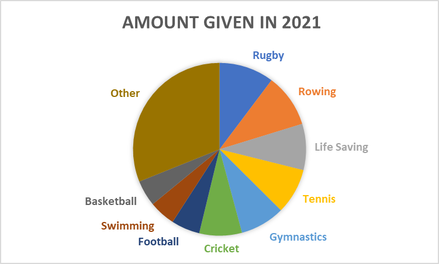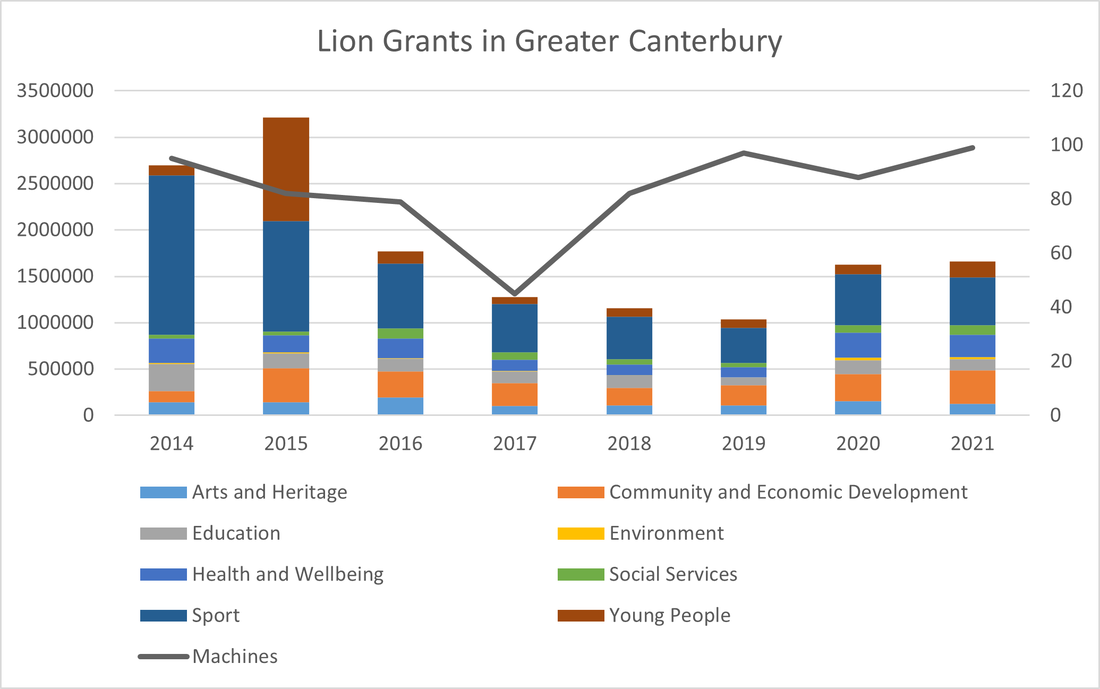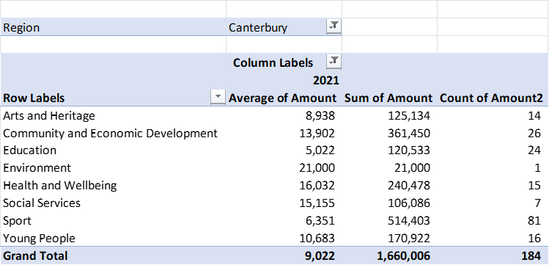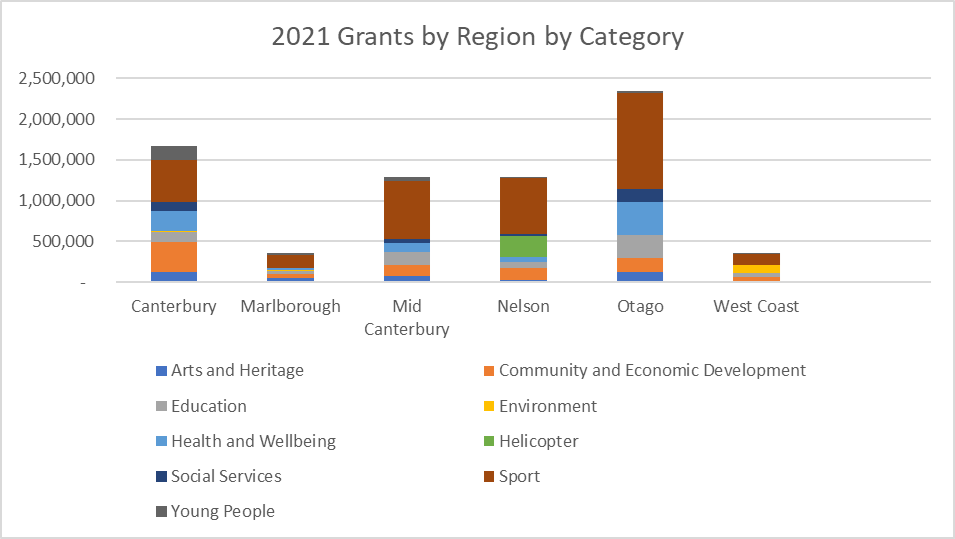Last month I had a look at Lion Foundation, a grant maker who run a national Class 4 gaming trust. They changed the way they report, bunching all the South Island grants under one banner about three years ago, moving from a far easier regional analysis. So that was scary, but I’ve jumped in and done the work. They have a financial year ending 31 March.
This is one of New Zealand’s largest gaming trusts, giving away over $35m in the last financial year. Their Authorised Purpose seems to be very wide, indeed looking at the Trust Deed from some time ago it almost mirrors the definition of Charity. I have used all the information I have dating back to 2014, because, well, why not.
Let’s see where the money goes. I’ve put the various grants against their March financial year. Using the magic of excel and my pretty weak data cleansing skills we can see that Lion really do have a wide approach to granting funds. We have a couple of outliers from post earthquake days where large licks of capital went into various projects. I suspect back in those days Canterbury may have got more than our fair share, but lets keep that between us shall we.
The chart below looks at the amounts given in 2021, by segment. You can see the average grant given by sector, the total amount given and the number of grants given in 2021 by sector. You may be surprised by Education as the number is quite high. Unlike some other gaming trusts Lion don’t disclose what the money goes to. I’ve just had a look at the organisations who received support in 2021, and not all of this will be for sport! Indeed they cover a range of schools and early learning centres, including The Canterbury Mathematical Association. Stoked to see this.

The next most popular category is the catch all Community and Economic Development. This is driven by a substantial donation to St Johns which accounts for around 60% of the total amount given to this category.
I’m quite impressed with the range that The Lion Foundation give to. That said they tend to give small amounts of money to lots of organisations, all adding costs to both the grant maker and those receiving the money. While they are fairly small within the Canterbury context, they certainly are very important within the New Zealand grant making ecosystem.
I write about this stuff as believe that as need to understand where funding comes from, where it goes, and how it gets there. As a citizenry we allow both those supplying money and those asking for money to operate, and as a community we need to ensure we have oversight over the organisations they choose to fund. Love to talk with you if you think this is at all interesting, and if you want to dive into the data a bit more than happy to do so. Check out my website http://www.delfi.co.nz/




 RSS Feed
RSS Feed